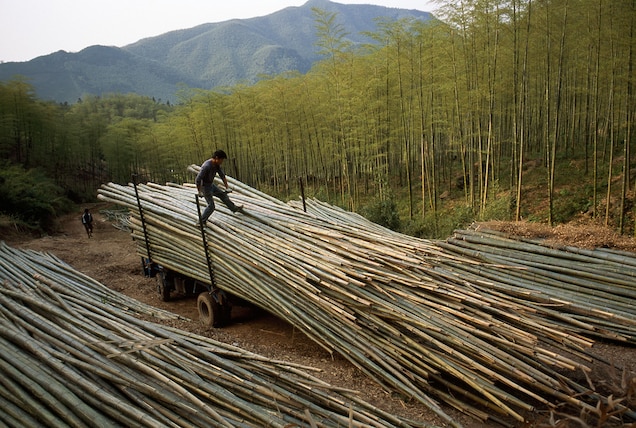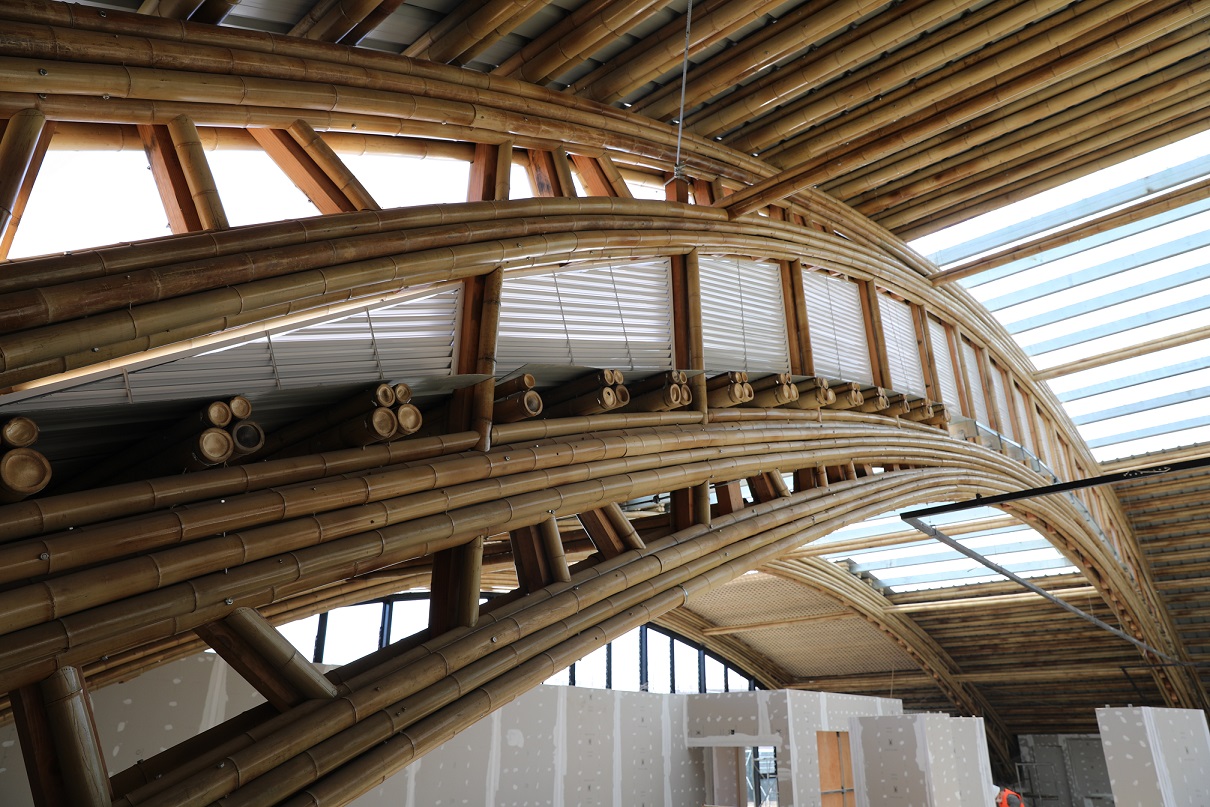Known as “green gold,” bamboo is gaining global recognition as a sustainable alternative to combat the negative environmental impacts of deforestation and carbon emissions. The International Bamboo and Rattan Organization (INBAR) recognizes the potential of bamboo and aims to promote and enhance the use of this versatile resource.
Bamboo grows quickly and has a strong ability to absorb carbon dioxide, making it ideal for mitigating climate change and achieving sustainable development goals. Intergovernmental organization International Bamboo and Rattan believes that bamboo can provide eco-friendly solutions in various sectors including construction, agriculture, energy and livelihood development.
One of the main focus areas for promoting bamboo is the construction industry. Traditional building materials such as steel and concrete have a large impact on carbon emissions and deforestation. However, bamboo is a lightweight, durable and renewable resource that can replace these materials. It has been successfully integrated into numerous building designs, promoting green and sustainable building practices while reducing the industry’s carbon footprint.
Furthermore, bamboo has huge potential in the agricultural sector. Its rapid growth allows for rapid reforestation, helping to combat soil erosion and protect biodiversity. Bamboo also has various agricultural applications such as crop diversification, agroforestry systems and soil improvement. INBAR believes that promoting bamboo as a viable option for farmers can enhance sustainable agricultural practices and contribute to rural development.
When it comes to energy, bamboo offers an alternative to fossil fuels. It can be converted into bioenergy, biofuel or charcoal, providing cleaner, more sustainable energy. Raising awareness and implementing bamboo-based energy solutions can reduce reliance on non-renewable resources and aid the transition to a greener, cleaner energy future.
 Furthermore, bamboo has great potential for livelihood development, especially in rural communities. INBAR’s initiatives focus on training local communities in bamboo cultivation, harvesting techniques and product development. By strengthening the local bamboo industry, these communities can increase their incomes, create jobs and improve their socioeconomic status.
Furthermore, bamboo has great potential for livelihood development, especially in rural communities. INBAR’s initiatives focus on training local communities in bamboo cultivation, harvesting techniques and product development. By strengthening the local bamboo industry, these communities can increase their incomes, create jobs and improve their socioeconomic status.
To achieve its goals, INBAR works closely with governments, research institutions and experts to promote sustainable bamboo practices and facilitate knowledge exchange. The organization also provides technical assistance, capacity building and policy support to its member countries.
As the world’s largest bamboo producer, China has played a pivotal role in promoting the use of bamboo. Currently, China has many bamboo-themed cities, research centers and industrial parks. It successfully integrates bamboo innovation into various fields and becomes a global model for sustainable bamboo practices.
The rise of bamboo is not limited to Asia. Africa, Latin America and Europe have also realized the potential of this versatile resource. Many countries are actively integrating bamboo into their environmental and development policies, recognizing its contribution to achieving the United Nations Sustainable Development Goals.
As the world grapples with climate change and seeks greener alternatives, promoting bamboo as a sustainable alternative is more important than ever. INBAR’s efforts and collaborations have the potential to revolutionize various sectors by integrating bamboo into sustainable practices, protecting the environment and contributing to the well-being of communities around the world.
Post time: Oct-09-2023







